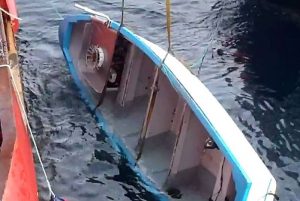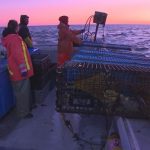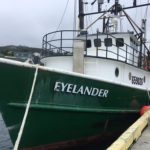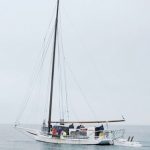Tag Archives: mass shellfish deaths
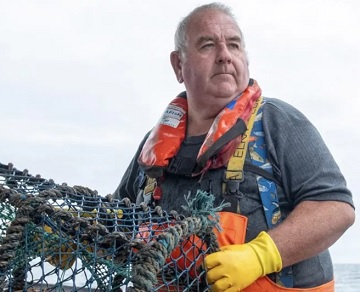
From the heart of a Hartlepool fisher – to EFRA
Dear EFRA COMMITTEE, MMO, local MPs, councillors and interested parties. Please log the ecosystem rock pool make up life change, with the many other die-offs that you haven’t given me feedback on, since the freeport dredge started in 1 September 2021, and the 145.000 tonnes of capital dredge from the toxic Seaton Channel, that you have allowed to be removed, irrespective of its chemical makeup, and dumped six miles out, in the last two weeks. I eagerly await the MMO answers, please copy the EFRA Committee in, and the feedback [as to] why these creatures are all that’s left in the ponds. >click to read< 07:46
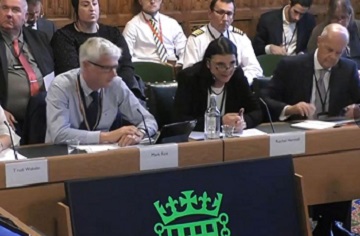
Experts quizzed over freeport, dredging and algal blooms as crab deaths on coast investigated
The deaths of thousands of sea creatures washed up on Teesside’s beaches are to be investigated in the House of Commons on Tuesday. Teesport operator PD Ports, the Environment Agency, a Whitby fishing association and academics will give evidence to MPs about the mass sea deaths. The Environment, Food and Rural Affairs select committee will hear from witnesses about the crustacean deaths after committee chair Conservative Sir Robert Goodwill, MP for Scarborough and Whitby, branded the situation “disturbing”. A Defra investigation earlier this year concluded the cause of the crab deaths to be a naturally occurring algal bloom but campaigners believe dredging has unearthed historical toxins – including a chemical called pyridine – which has caused the deaths. >click to read< 12:15
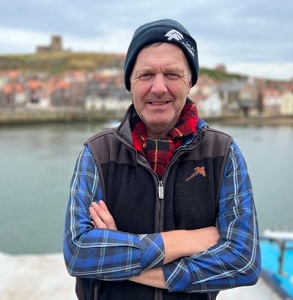
BBC documentary examines mass crab die off on Teesside coast and what has happened since
A TV documentary examining the impact of the mass crab and lobster die off on the Teesside coast is set to air. We Are England: Trouble at Sea looks at the events of last October and what has happened since. In it, film makers speak to fishermen, conservationists, the Tees port authority PD Ports and scientists to document the effects of the worrying occurrence, the subsequent investigation and the theories on its cause that have been an ongoing source of dispute. Teessiders will know huge piles of crabs, lobsters and shellfish began to wash up on beaches around the Redcar and Markse areas as well as Hartlepool a year ago before washing down the coast as far as Whitby. They were seen in piles that were waist deep in some places and most were dead or dying.>click to read< 21:32
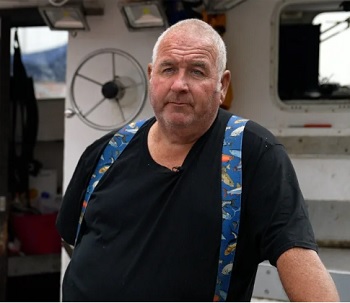
Impact of mass crab die-off ‘not as severe as feared’ but report criticised by fisherman
A monitoring report into the state of shellfish stocks along the Teesside coast following the mass crab and lobster die off has concluded the impact ‘was not as severe as originally feared.’ But a fisherman who works off the Hartlepool coast has hit out at the findings and claims it does not paint a true picture. However, Stan Rennie, who fishes from Hartlepool, has criticised the report. He says it includes the catches of all of the visiting super crabbers which work thousands of pots, and he says, it doesn’t take into account the fact that fishermen are going further afield to get out of the die-off areas. >click to read< 14:48
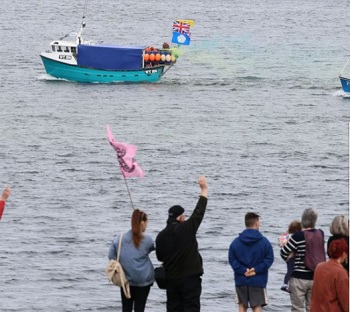
Mass shellfish deaths off Whitby area coastline to be probed in Government’s new hearing – Middlesbrough Council ‘absolutely on board’
The Government’s Environment Food and Rural Affairs (EFRA) Committee is to probe the deaths of large numbers of crustaceans off the coast over the past year in a hearing at the House of Commons on Tuesday October 25. ERFA previously blamed algal bloom as the cause of the deaths, but an independent probe carried out recently pointed towards dredging and the chemical pyridine being the most likely cause, with some Whitby fishermen calling for the dredging of the Tees to halt. >click to read< Middlesbrough Council ‘absolutely on board’ with joint probe planned into crustacean deaths – Councillor Mick Saunders, chairman of Middlesbrough Council’s overview and scrutiny board, said: “Absolutely we are on board, I think there’s more to come out really, more than what the Government has been saying. Meanwhile, self-employed Hartlepool fisherman Stan Rennie, a member of the North East Fishing Collective (NEFC), has said fishermen are in a “desperate position” with half of the town’s shellfish fleet lost in the past year. >click to read< 08:30
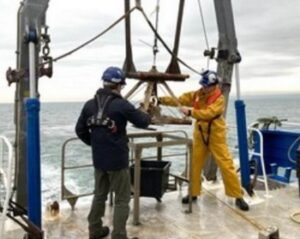
Deaths, accusations and a search for truth: The Teesside seaside die-off and where we are now
It is an issue that has caused a huge amount of concern right the way across Teesside and down into North Yorkshire. And it is simply not going away. Last October, residents living in the Marske area began to notice huge piles of dead and dying crabs, lobsters and shellfish washing up on the beach between the seaside town and neighbouring Saltburn – in places, the piles were waist deep. Fishing livelihoods have been decimated, protests have been mounted and the campaign for a re-investigation continues. Here’s what has happened so far as the issue continues to prove contentious. >click to read< 07:58
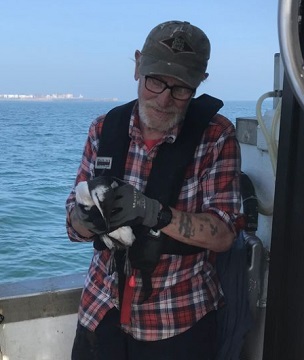
Yorkshire fisherman says his livelihood is being ‘devastated’ by mass deaths
James Cole, Chair of Whitby Commercial Fishing Association, has been talking about the serious impact the crisis has had on the fishing industry. He said: “It has had a devastating effect on the turnover of shellfish from Whitby and Hartlepool as well.” One particular feature of the crisis has been the lack of brown crabs which have been “absolutely devastated” in number. Velvet Crabs, which Mr Cole says are a food source for many animals which live close to the shore have been “more or less wiped out on the shore grounds”. The government has said the mass deaths were caused by a “naturally occurring harmful algal bloom”,,, >click to read< 10:35
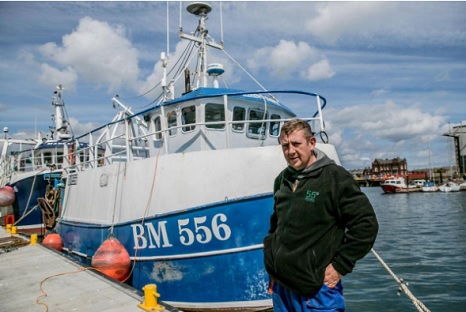
Fishermen launch legal action over North East crustation deaths
Fishermen along the North East coast have told of taking up new jobs amid a fishing crisis which has threatened their livelihoods and seen dead crustaceans wash up along the shoreline. Paul Graves, a lifelong fisherman off the Teesside and North Yorkshire coast, has taken up extra jobs over the summer to earn a living while his fishing boat is tied up in Hartlepool Mr Graves, like many other fishermen in the area, have grown frustrated by a marine life crisis which has seen hundreds of dead crustaceans wash ashore along the coast. For Paul, he’s contemplated selling his boat, owned by his family for years, due to the uncertain future. “I tied the boat up and went and did seven weeks work for a cable company,” he said. photos, >click to read< 15:49
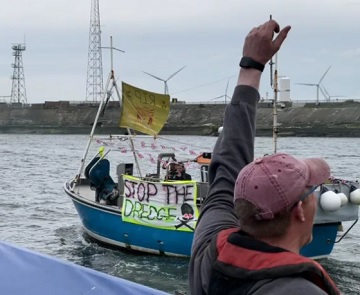
Government accused of ‘cover up’ over Teesside mass crab deaths
But Defra has insisted joint investigations into the deaths were thorough. Unrest, debate and protests over huge piles of dead crustaceans on Teesside’s coastline have rumbled on since problems first started last autumn at Seaton Carew, South Gare, Redcar, Marske and Saltburn. An algal bloom was deemed to be the likely culprit by a Defra-led study. But this was countered by an independent report by Tim Deere-Jones after he was commissioned by those concerned in the fishing industry. High levels of a chemical pyridine were noted by Mr Deere-Jones’s report. Mr Deere-Jones’ report also said algal blooms did not occur naturally in our coastal waters in October because the temperatures were too low. >click to read< 10:35

Fishermen from across North East and Yorkshire in boat protest over mass shellfish deaths
Fishermen have held a protest on Teesside over the ongoing deaths of crabs and lobsters which they say is decimating their industry. Government scientists say natural algae in the water is responsible, but protestors want proof that recent dredging in the North Sea has not also had an impact in creating what they are calling a “dead zone”. Thirty fishing boats from Whitby, Redcar and Hartlepool sailed to South Gare to meet protestors on land to demonstrate about the continuing crisis. >click to read< 08:59


































